T: 01822 851370 E: admin@sparse.gov.uk
RSN Voices Serious Concerns Over ‘Fairness’ Of Settlement
Read here...
July Edition of Casebook from the Rural Health and Care Alliance
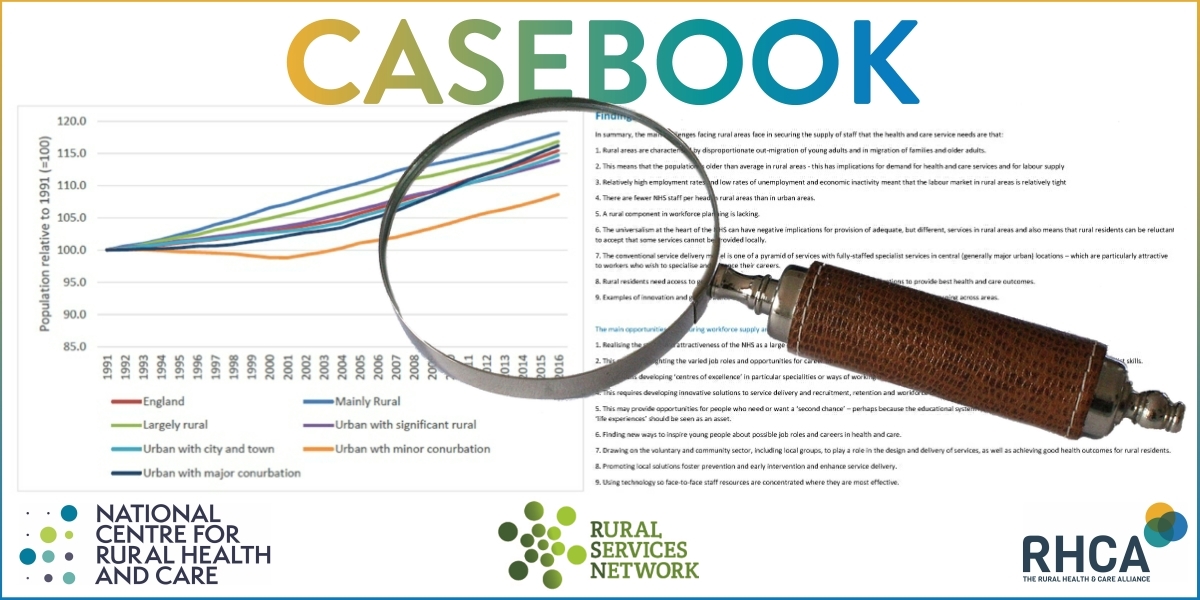 July 2025 Edition
July 2025 Edition
Welcome to this month's edition of Casebook in which we look at the Government’s 10 Year Health Plan and invite you to share your views. We also highlight our Delivering for All campaign which includes policy asks specifically related to rural health and care, again we would welcome your thoughts and would be especially keen to receive any case studies you might have on key issues. Young and old are also featured in Casebook this month with articles on youth and adult services. Read on!
Delivering for All
 A new policy framework from the Rural Services Network
A new policy framework from the Rural Services Network
Every person, in every place, deserves the chance to thrive — including those living in rural, coastal and small-town communities.
The Rural Services Network is proud to launch Delivering for All: A Roadmap for Rural Prosperity — a comprehensive policy document setting out the steps needed to unlock the full potential of rural areas and ensure no community is left behind.
This roadmap provides a clear, evidence-based plan to shape a fairer, stronger and more sustainable future — for rural communities, and for the country as a whole.
About the Roadmap
Delivering for All identifies eight key policy areas including rural health and care that are critical to rural life and national renewal:
Residents in rural communities deserve equitable access to healthcare, tailored to their unique needs and circumstances. Investing in rural health and care is essential for reducing disparities, supporting wellbeing, and ensuring sustainable, inclusive communities.
Why This Matters
Despite their potential, rural communities continue to face deep-rooted inequalities. Rural areas are often overlooked in policymaking, with data and funding formulas skewed toward urban contexts. This roadmap seeks to change that by setting out the foundations for smarter, fairer, more inclusive policy.
A Call to Action
Cllr Roger Phillips, Chair of the Rural Services Network, said:
“This roadmap is a call to Government and policymakers: invest in rural communities, listen to rural voices, and work with us to deliver for all.”
Download the roadmap here
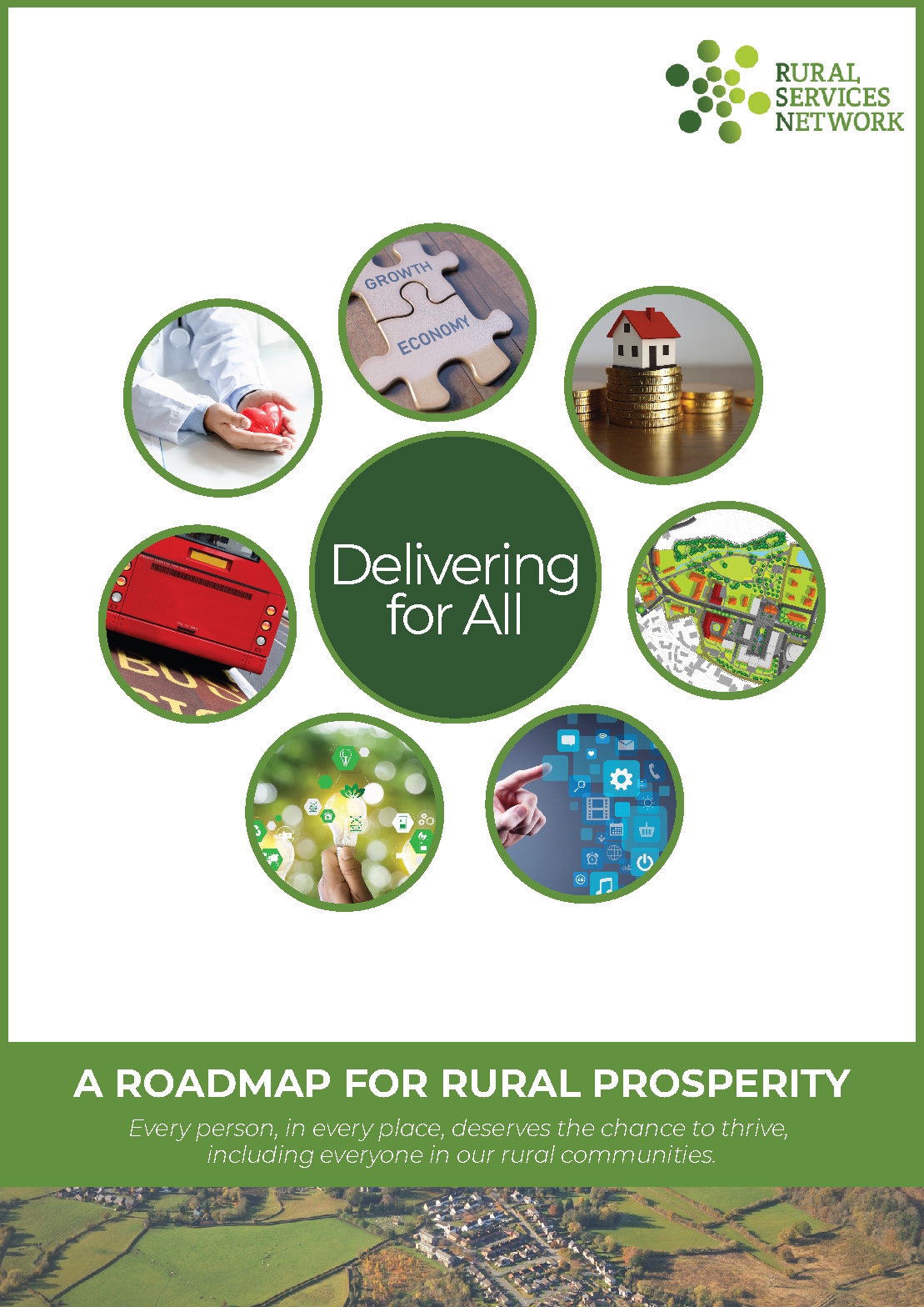 |
You can read the associated Press Release here.
A Ten Year Health Plan for England
 The Department of Health and Social Care has released its new 10-Year Health Plan for England, outlining how the NHS will be reshaped over the next decade to improve patient care, reduce waiting times, and address long-standing workforce and service pressures.
The Department of Health and Social Care has released its new 10-Year Health Plan for England, outlining how the NHS will be reshaped over the next decade to improve patient care, reduce waiting times, and address long-standing workforce and service pressures.
Titled Fit for the Future, the plan sets out three central goals:
- Expanding neighbourhood and at-home care – including more local health centres, increased GP training, and faster access to same-day appointments.
- Better use of technology and data – through a single digital patient record and a more advanced, user-friendly NHS App to help patients manage appointments, prescriptions, and access advice more easily.
- Improving public health and prevention – by working with schools, employers, local councils, and charities to tackle key health risks such as smoking, obesity, and alcohol misuse.
The Government says the plan is based on extensive public engagement and aims to make the NHS more responsive, sustainable, and equitable — ensuring everyone can access the care they need regardless of income or location. It also includes commitments to improve hospital care, invest in NHS workforce development, and lead on medical research and innovation.
Download and read the plan here
The RSN welcomes views from our members on what the proposals mean for rural health and care provision in their areas.
Youth Work Gives Young People A Voice
 Young Somerset has published its latest Impact Report, offering a powerful insight into the breadth of support provided to children, young people and families across the county.
Young Somerset has published its latest Impact Report, offering a powerful insight into the breadth of support provided to children, young people and families across the county.
Originally founded as the Somerset Rural Youth Project, Young Somerset continues to put young people at the heart of its work—delivering targeted youth services, early mental health interventions, wellbeing support, and alternative education. The report highlights achievements across rural, urban and coastal communities, with over 7,400 individual contacts through the Mental Health Support Team and more than 14,700 direct hours with young people delivered through targeted youth support.
Initiatives like the Bold & Brave café and shop in Taunton are equipping young people with enterprise skills and confidence, while the Young Rangers programme provides hands-on outdoor learning and conservation experience in the Quantocks. Early years workshops, parenting support, and community wellbeing services round out a holistic offer designed to meet the varied needs of young people across Somerset.
Read the full report and find out more here
Bringing Care Closer to Home

Hospice UK has published a significant new report, Bringing Care Closer to Home, which calls for urgent action to address the inequalities faced by people living in remote, rural and island communities when it comes to accessing palliative and end of life care. Based on extensive engagement with patients, carers and professionals, the report finds that nearly two thirds of people living in rural areas said they or the person they cared for did not receive the care they needed. Two thirds of rural health and care staff also reported that there were not enough skilled workers to support people with life-limiting conditions—particularly in social care.
The report highlights the reality that many rural residents face difficult choices between remaining in their home communities or moving far from family and friends in order to receive appropriate care. These challenges are even more pronounced for families of children with complex, life-limiting conditions, where local staff may lack training and confidence in providing appropriate support.
With rural populations ageing more rapidly than those in urban areas, demand for palliative care is set to rise sharply. Hospice UK warns that without targeted action, rural communities will continue to face growing unmet need.
The report makes several key recommendations to improve access and quality of care in rural settings. These include:
- A shift to more community-based palliative care, backed by dedicated funding.
- National workforce plans to address recruitment and retention in rural health and care roles.
- Local systems and authorities being held accountable for commissioning rural-appropriate services.
- Stronger collaboration between local care providers, GPs, pharmacies, social care teams and hospices.
- A 24/7 palliative care helpline available in every area.
Read the full report on the Hospice UK website here
The Rural Services Network recognises the importance of this work in shining a light on the particular challenges rural communities face at the end of life and supports the call for rural-proofed solutions. We encourage our members and stakeholders to read the full report and consider its implications for local service planning and delivery.
The Widening Disparities in Adult Social Care

A new report from the Institute for Government, Adult Social Care Across England, reveals stark and growing inequalities in access to publicly funded adult social care, with older adults facing the greatest disparities. The report, part of the Performance Tracker Local series supported by the Nuffield Foundation, finds that care provision increasingly depends on where a person lives — not just their level of need or financial means.
Key findings include:
- Access to long-term care for older adults (65+) has halved since 2003/04 —falling from 8.2% to just 3.6% in 2023/24.
- There is wide variation in access across the country. In 2023/24, the proportion of older adults receiving long-term care ranged from 2.0% to 8.8% depending on local authority.
- Local authorities with larger older populations tend to provide care to a smaller share of those residents, indicating that care is being rationed in areas with high demand.
- Where access is lower, unpaid carers — often family members, women, and lower-income individuals — step in to fill the gap.
Read the full report here
RSN Response: Implications for Rural Areas
While the report does not focus specifically on rural England, its findings have clear and serious implications for rural communities, where populations are older, health needs are higher, and formal services are more limited.
The Rural Services Network notes that:
- Rural areas often have a higher proportion of residents aged 65 and over, making them particularly vulnerable to the kind of service rationing highlighted in the report.
- Geography and workforce constraints can make it harder for rural local authorities to meet statutory care duties — yet the funding formula does not fully reflect these additional pressures.
- Access to care is not just about eligibility — it is also about availability. In dispersed rural settings, even eligible individuals may face long waiting times or unviable distances to access services.
- As the report shows, where formal provision declines, the burden shifts to unpaid carers. In rural areas, this often falls on neighbours, spouses, or adult children — many of whom may be older themselves or juggling work and caring responsibilities.
Book your free space at the National Rural Conference
 Bookings are now officially open for the National Rural Conference 2025, which will take place online from Monday 15 to Thursday 18 September.
Bookings are now officially open for the National Rural Conference 2025, which will take place online from Monday 15 to Thursday 18 September.
This is the Rural Services Network’s flagship event of the year, bringing together rural decision-makers, practitioners, and advocates for four days of live, interactive sessions focused on the future of rural communities.
This year’s conference will feature eight themed sessions covering key rural policy areas.
All sessions will be live and will not be recorded, so early booking is strongly encouraged to secure your place and take part in real-time discussion.
Last year’s conference welcomed 655 delegates and featured over 30 expert speakers. The 2025 event aims to build on that success by providing even more opportunities for insight, dialogue and collaboration.
Sponsorship opportunities
The RSN also welcomes interest from organisations looking to support the conference through sponsorship. This is a valuable opportunity to connect with rural stakeholders and demonstrate your commitment to helping rural communities thrive. For more information, please email: admin@sparse.gov.uk
We’d love to hear from you - share what you’re proud of
If you have something, you would like us to feature in a future edition, please let us know by clicking here to send us an email.
Spread the word
If you know of other organisations that you think would benefit from joining the Rural Health & Care Alliance, please click here to email us and let us know.
RURAL SERVICES NETWORK
Up to date news on Health and Care
The Rural Services Network provides a useful source of themed news content and data. Check out the latest news on Rural Access to Health and Care Services and Vulnerability, where you’ll find articles on a diverse range of rural issues affecting rural communities.
Latest from RSN Member Insights
RSN Member Insights is the place to discover the statistics that define communities within our membership. It is regularly updated with new analyses, and these will be highlighted in the 'What's New' section of the RSN's Weekly Rural Bulletin. The Rural Bulletin also provides a selection of the most rurally topical news items, so do subscribe and encourage your colleagues to subscribe to what is an invaluable weekly periodical.
| The Rural Health & Care Alliance is a membership organisation administered by the Rural Services Network on behalf of the National Centre for Rural Health & Care. Explore the RHCA service below: |
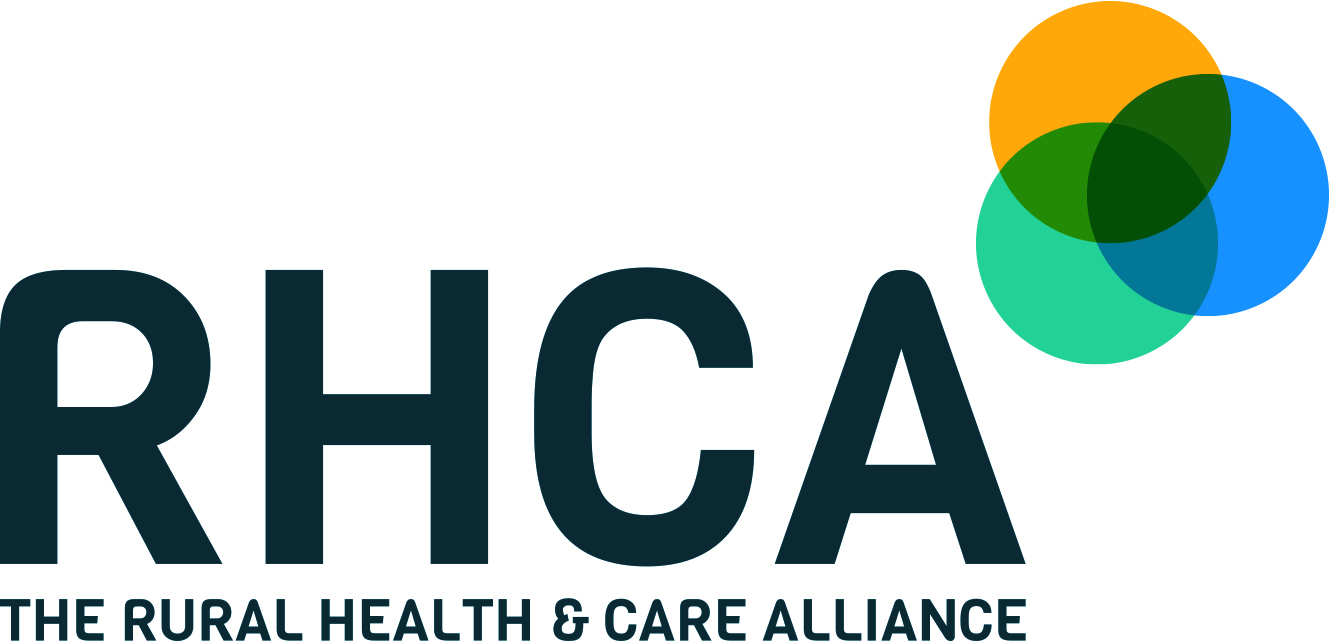 |
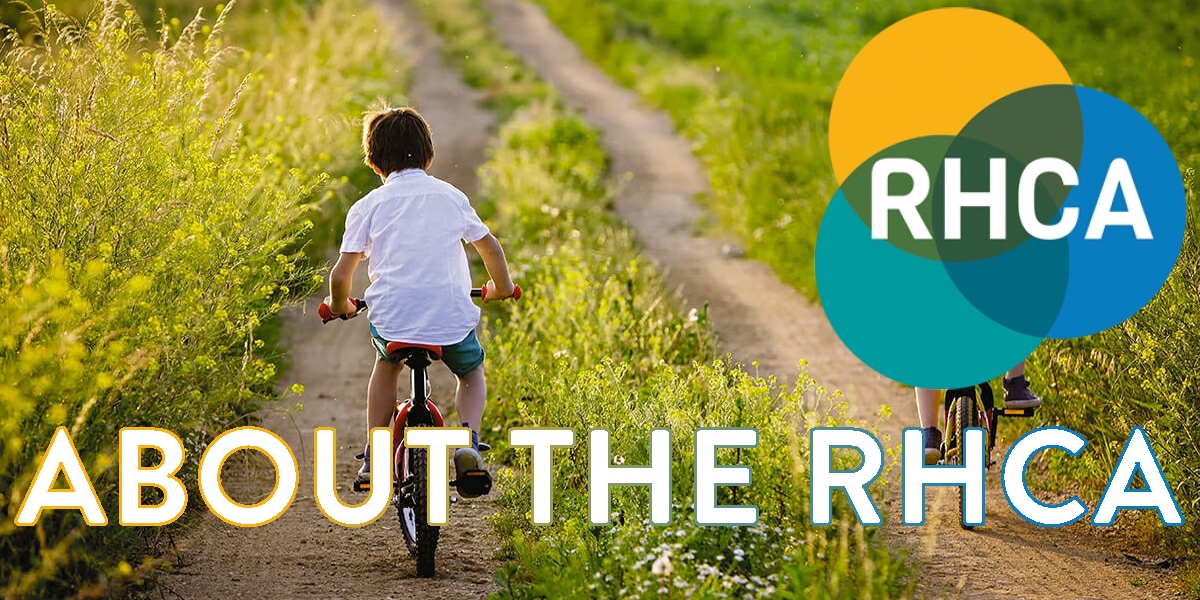 |
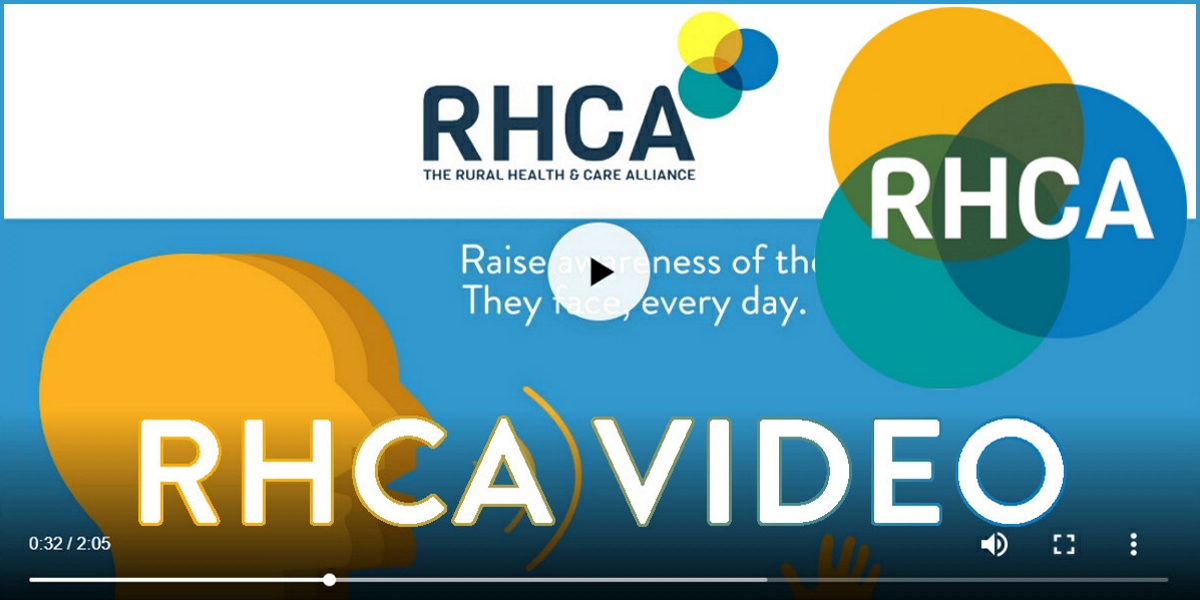 |
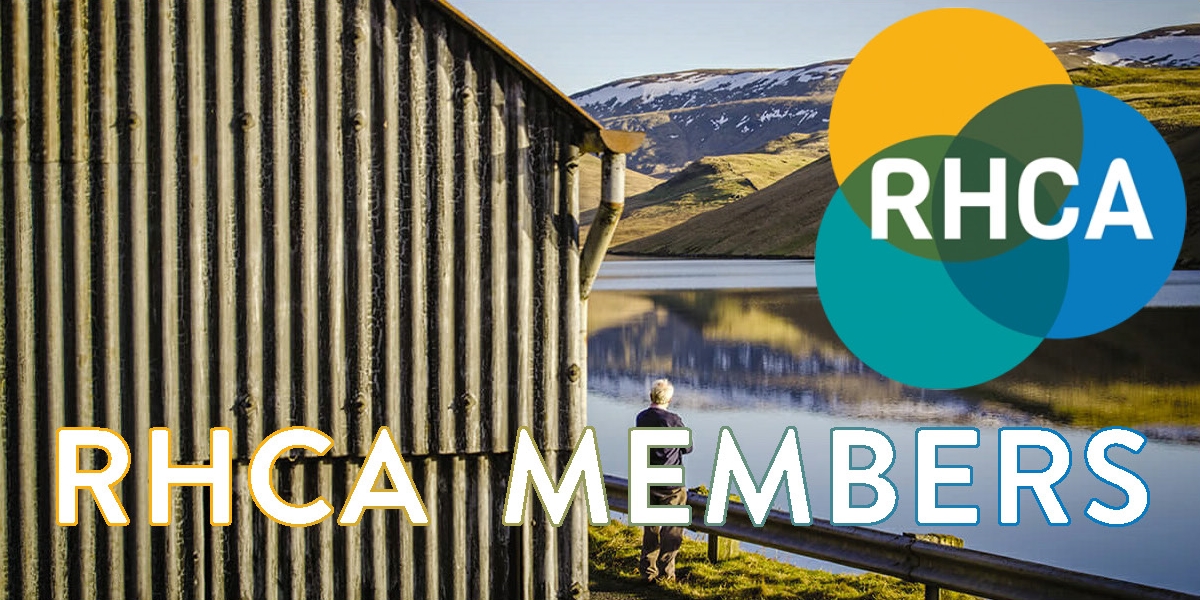 |
 |
 |
 |
 |
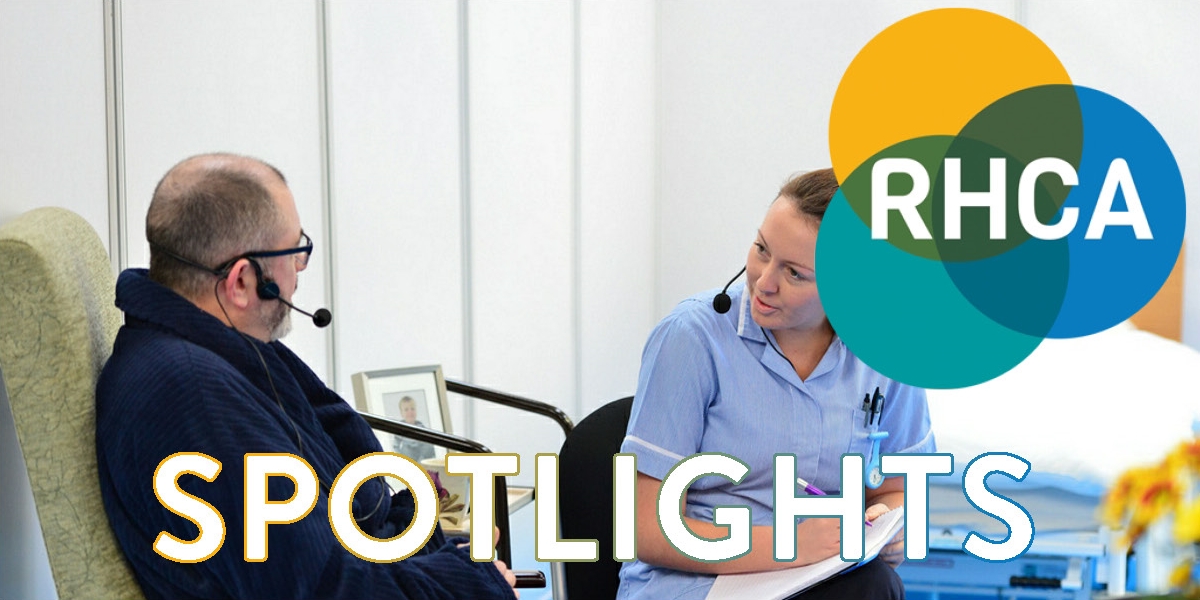 |
 |




